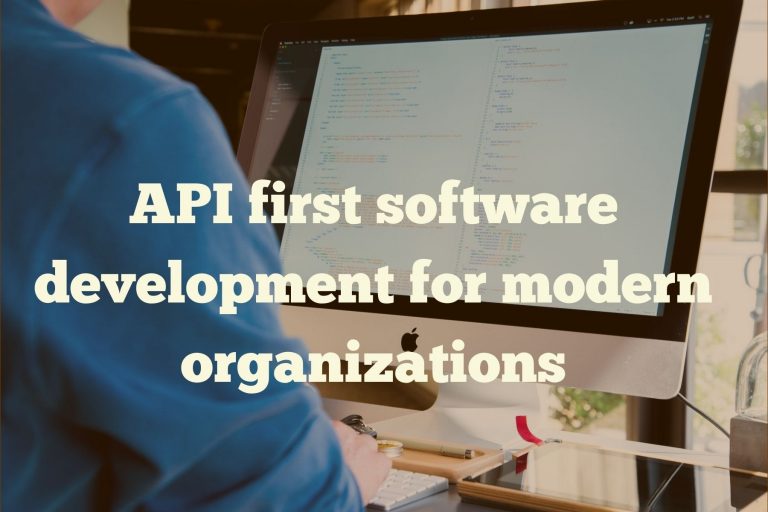Many SMEs & large organizations are readily moving to the cloud to make their business processes more flexible & agile. With pandemic as an accelerator, almost 67% of enterprises & their infrastructure will be based on the cloud by the end of 2021.
One important thing to notice in this exodus from traditional to cloud-based systems is that IT teams need to deal with containerization, continuous delivery & brand new microservices architectures. In this scenario, an API first development can help teams to effectively address the complexities associated with working in the cloud.
Why Shouldn’t enterprises use Code-first approach?
If teams turn to traditional code-based approaches then that would lead to rework, delays & disconnected experiences for both the developer & the user. With API-first development, developers can create APIs first and then move towards application development. Why do this?
To understand that better let’s quickly look at what API-first development entails.
What is API first software development all about?
To put it simply, instead of developing enterprise applications, IT teams develop APIs first.
In this way, when organizations develop new functionality, they need to expose the API. Teams can then simplify application development by relying on the interfaces of the API. This helps enterprises scale their applications according to various business needs.
What is API first design then?
This takes the concept of API first development deeper. In this, developers need to plan the functionality of the API first before building the API.
Questions like what data will the API expose? What features will the API have? & how can the APIs scale future applications? will need to be answered in the API first design process.
5 Benefits of API first approach for modern organizations
1. Enjoy Early Validation
Development teams can easily get early feedback on the design. This allows developers to incorporate new inputs or make changes in the existing API design at lower costs. One of the biggest advantages of this method is that enterprises get to reduce the overall cost of development throughout the lifetime of a particular project.
2. Minimized Dependencies
Dependencies are bogging down development activities in SMEs & large organizations. But with an API first approach, multiple teams can adhere to a contract of development i.e., APIs are developed by one team which is then validated by others. Once that is done, other teams can go ahead with application development without worrying about incompatibility issues in the future.
This decouples the dependencies of teams & accelerates the overall development time.
3. Eliminate Complexities
With an API first approach, IT teams are free to show only the necessary details to the intended developers& users. This hides unnecessary complexity of code & enables others to quickly build new applications & services for enterprises.
4. Scale Applications like never before!
One of the biggest advantages of an API first is scalability. API first approaches take future features & probable business needs into account. This lets enterprise lay the groundwork for quick scalability to other devices, platforms & applications.
5. Free your application design from legacy constraints
Traditional code-based approaches usually leverage legacy systems that are complex, cumbersome & time-consuming. They restrict or put forth obstacles fordevelopers from designing services as per business needs.
However, with API first developers get the free API & application design from the constraints of legacy systems!
These are a few reasons why modern organizations should go for API first development instead of a complicated code first approach.






